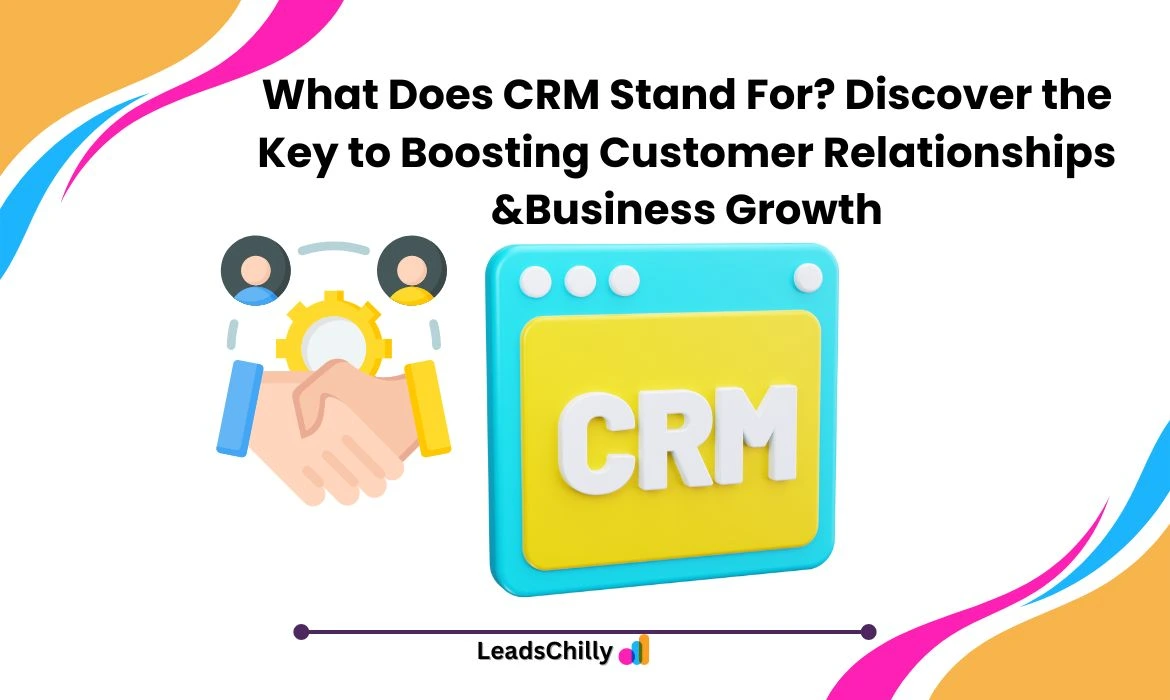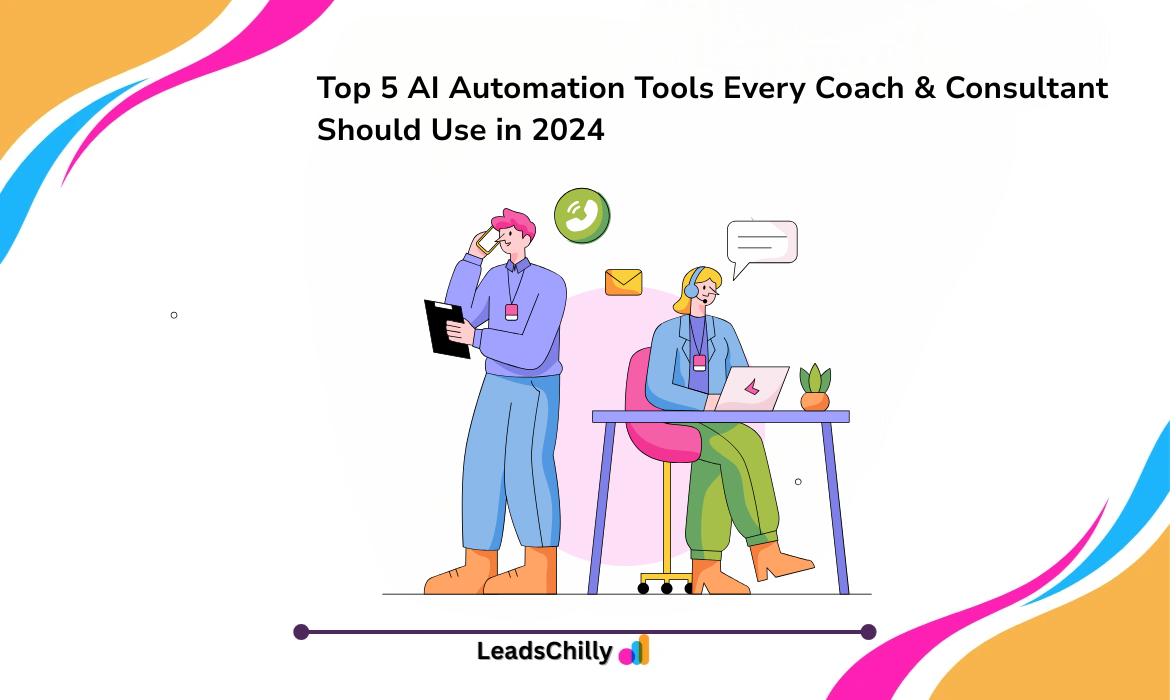In 2024, 91% of businesses with over 10 employees now use CRM systems to manage their customer interactions, and companies that adopt CRM see a 29% increase in sales (source). But what exactly does CRM stand for, and why is it so vital for modern businesses? This guide will break down everything you need to know about Customer Relationship Management (CRM) and how it can transform your business.
The benefits of CRM include a centralized communication channel, increased customer retention, detailed insights and analytics, improved customer support systems, and much more.
What Is CRM? Breaking Down the Acronym
CRM stands for Customer Relationship Management. At its core, CRM refers to strategies, tools, and technologies used by businesses to manage and analyze customer interactions throughout the entire customer lifecycle.
Key Components of CRM:
Customer Data Storage:
CRMs allow businesses to store customer information such as contact details, purchase history, and preferences.
Automation of Processes:
From lead nurturing to customer support, CRMs automate repetitive tasks.
Analytics:
CRM software offers insights into customer behavior, helping businesses refine their strategies and improve customer experience.
Why CRM Is Essential for Modern Businesses
In a world where customer expectations are constantly evolving, CRM has become a necessity for modern businesses.
Why Your Business Needs CRM:
- Centralized Customer Data: A CRM system consolidates customer information into one platform, making it easier for teams to access important data and provide consistent service.
- Personalized Customer Experience: By analyzing customer data, businesses can tailor communications and offerings to meet individual customer needs.
- Improved Sales and Retention: CRM tools help businesses track leads, manage follow-ups, and nurture customer relationships, which can lead to higher sales and retention rates.
Types of CRM Systems: Operational, Analytical, and Collaborative
There are three main types of CRM systems, each catering to different aspects of customer relationship management.
1. Operational CRM:
This type focuses on automating processes like sales, marketing, and customer service. It helps businesses streamline tasks such as tracking leads, handling customer queries, and managing campaigns.
2. Analytical CRM:
Analytical CRMs gather customer data and provide insights into customer behavior. Businesses use these insights to refine their strategies, segment customers, and forecast trends.
3. Collaborative CRM:
Collaborative CRMs enable various departments (sales, marketing, and customer service) to share information about customers. This type of CRM improves internal communication, helping teams work together to provide a seamless customer experience.
Key Features of CRM Software
A good CRM system comes equipped with various features that enhance both internal operations and customer experience.
Key Features to Look For:
- Contact Management: Store and organize customer information for easy access.
- Sales Automation: Automate follow-ups, reminders, and sales forecasting.
- Lead Management: Track potential customers and nurture leads through the sales funnel.
- Customer Service Tools: Manage customer support tickets, live chats, and feedback.
- Reporting and Analytics: Generate insights on customer behavior, sales performance, and customer satisfaction.
How CRM Systems Help Businesses Grow
The benefits of a CRM system extend far beyond just storing customer data.
Ways CRM Drives Business Growth:
- Improved Sales Efficiency: With sales automation tools, sales teams can prioritize leads and close deals faster.
- Better Customer Retention: CRMs help businesses understand customer pain points, improving customer support and overall satisfaction.
- Targeted Marketing Campaigns: CRMs allow for more personalized and segmented marketing efforts, which result in higher engagement and conversions.
- Informed Decision Making: With detailed analytics, businesses can make data-driven decisions that positively impact their growth strategies.
Cloud-Based CRM vs On-Premise CRM
Choosing between cloud-based and on-premise CRM solutions is a critical decision for any business.
Cloud-Based CRM:
- Advantages: Access from anywhere, automatic updates, and lower upfront costs.
- Disadvantages: Ongoing subscription fees and reliance on internet connectivity.
On-Premise CRM:
- Advantages: Full control over data and no recurring subscription costs.
- Disadvantages: Higher upfront costs for hardware and maintenance, limited accessibility.
Steps to Implementing a CRM System
Implementing a CRM system doesn’t have to be overwhelming. Here are the key steps to ensure a smooth integration.
Steps to CRM Implementation:
- Define Your Objectives: Determine what you want to achieve with your CRM (e.g., improved sales tracking, better customer support).
- Choose the Right CRM: Select a CRM that fits your business needs and scale.
- Migrate Data: Transfer existing customer data into the new system.
- Train Your Team: Ensure all team members are familiar with how to use the CRM effectively.
- Monitor and Optimize: Continuously review CRM performance and make adjustments to maximize its effectiveness.
Choosing the Right CRM for Your Business
With countless CRM options available, finding the right one can be daunting. Here are some key considerations:
Factors to Consider:
- Business Size and Industry: Choose a CRM designed for your business size and industry.
- Scalability: Ensure the CRM can grow with your business.
- Ease of Use: A user-friendly interface is essential for team adoption.
- Integration Capabilities: Select a CRM that integrates with your existing tools (email, marketing, etc.).
Popular CRM Software in 2024
As of 2024, several CRM software options dominate the market, each offering unique features. Here are some of the top choices:
Top CRM Solutions:
- LeadsChilly: A comprehensive CRM solution with easy integration and automation features.
- Salesforce: Known for its powerful analytics and vast customization options.
- HubSpot CRM: A free CRM option with excellent tools for startups and small businesses.
- Zoho CRM: Affordable and feature-rich, suitable for small to medium businesses.
- Microsoft Dynamics 365: A CRM tailored for larger enterprises with robust data analysis tools.
Conclusion
Understanding what CRM stands for and how it impacts your business is key to staying competitive in today’s market. With the right CRM system, businesses can improve customer relationships, drive sales, and streamline operations. From cloud-based solutions to advanced analytics, CRM systems offer numerous ways to boost growth.
However, the key to unlocking these benefits lies in a strategic approach that aligns with your business goals. Don’t leave your CRM success to chance—partner with LeadsChilly to ensure you get the most out of your CRM investment.
Ready to take the next step? Start your free 14-day trial with LeadsChilly today and see how we can help you transform your customer relationships and drive your business forward.
Frequently Asked Questions
CRM stands for Customer Relationship Management, a tool and strategy businesses use to manage their interactions with current and potential customers.
For small businesses, a CRM helps in organizing customer data, streamlining communication, and improving marketing efforts—all of which contribute to growth.
Yes, most cloud-based CRMs, like LeadsChilly, offer secure data storage, encryption, and regular updates to ensure the safety of your customer information.
The time to implement a CRM can vary, but with the right planning, most businesses can get a CRM up and running in a few weeks.
Absolutely! A CRM allows you to personalize customer interactions, provide quicker support, and understand their needs, leading to higher satisfaction.




Comments are closed.